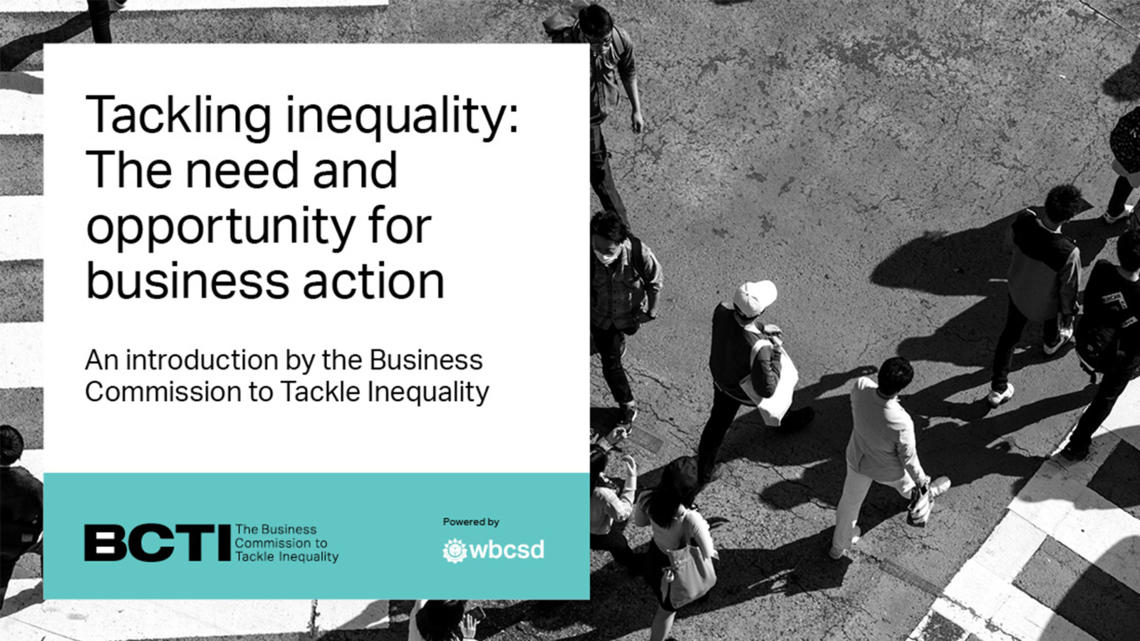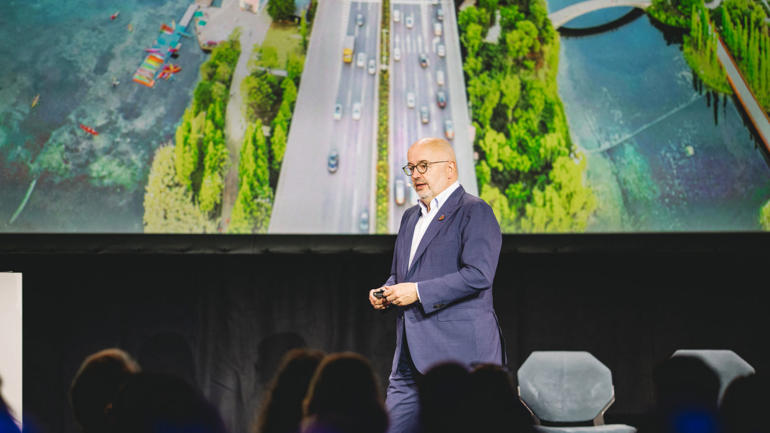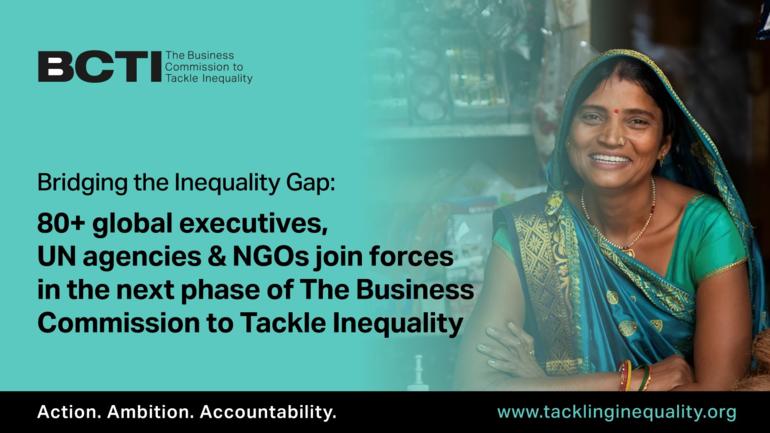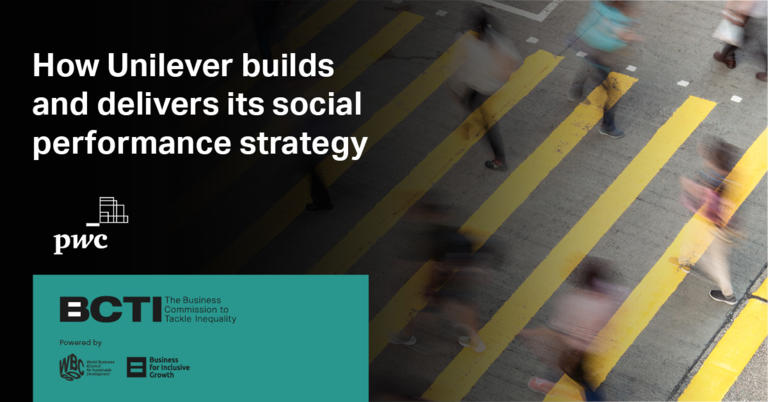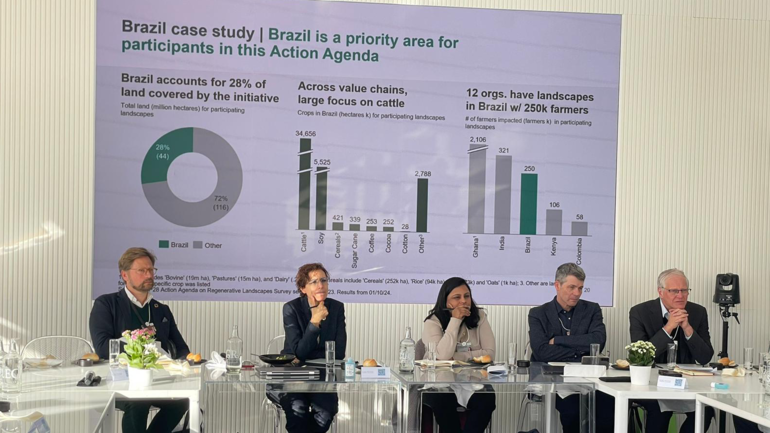Sustainability has become mainstream. Today more than ever, business is expected to take action to tackle the climate emergency, bring greater sustainability into value chains and be held accountable for these efforts. Capital markets, consumers, and governments are all in agreement that sustainability is the only future for business – as well as for our people and planet.
However, despite this progress, many businesses continue to have an important blind spot when it comes to efforts to support genuinely sustainable development. Collectively, we are failing to address the systemic risk posed by mounting levels of inequality.
The fact is that we live in a world of vast and escalating disparities in income, wealth, and wellbeing. According to the latest World Inequality Report, the top 10% of the population earns 52% of global income and holds 76% of global wealth—meanwhile, the bottom 50% of people capture just 8.5% and 2% respectively. Despite two centuries of exponential economic growth, many people are still not “living well.” What’s more, they face structural barriers to improving their circumstances in the future. Inequalities of opportunity based on gender, race, ethnicity, sexual orientation, disability, place of origin, socioeconomic status, and other factors remain entrenched.
We are seeing clearly how the inequality inherent in our system is acting as a threat multiplier, both fueling and feeding off crises like COVID-19 and the climate emergency. The latest Intergovernmental Panel on Climate Change (IPCC) report unequivocally calls for action to tackle inequality as a key lever in promoting climate resilience and adaptation. Meanwhile, as the tragic war in Ukraine continues to displace millions and disrupt global supply chains, it is vulnerable communities that look set to be hit the hardest.
As businesses, we have often looked to others, such as governments and civil society, to take action to ”fix” inequality. However, the reality is that inequality is not only a problem that affects business, but also a problem that business has played its part in creating. At this critical juncture, it is imperative for business to show leadership and take practical action to tackle inequality - and there are compelling reasons for it to do so.
At the macro level, inequality frays the social fabric on which business depends. Around the world, people are feeling insecure. They are dissatisfied with their circumstances, and pessimistic about their futures. They are losing faith that the system will deliver for them and their children. This, in turn, is decreasing participation in social and civic life, driving civil and political unrest, fueling populist movements, and undermining our ability as a society to tackle complex challenges. Business needs a stable, predictable operating environment in which key institutions are trusted to do their jobs—and inequality is eroding that trust.
At the same time, the rationale for tackling inequality is about unlocking company-level benefits—including attracting and retaining talent, winning consumers, enhancing access to capital, building resilient supply chains, and staying ahead of policy and regulatory change.
Companies have powerful tools at their disposal that can help to level the playing field, create opportunities for all people, and ultimately narrow social and economic divides. As business leaders, we must ask ourselves: Are our organizations creating jobs that enable workers to pay their bills and invest in their futures? Are we offering the goods and services that improve people’s lives, at prices communities around the world can afford? Are we paying our fair share of taxes so that governments can deliver effective public services and social safety nets? The answers to questions like these will be increasingly critical for long term business continuity and success, and there will be mounting pressure from investors and governments to get them right.
Ultimately though, tackling inequality will be beyond the reach of any one organization. This will take collective action across all corners of society. This is why at WBCSD, we have convened the Business Commission to Tackle Inequality (BCTI), a cross-sector, multi-stakeholder coalition of 60 organizations and their leaders with the mission of mobilizing the private sector to tackle inequality and generate shared prosperity for all.
These leaders are joining forces to develop and champion a business case that will get their peers to sit up and listen—as well as a shared agenda for action that they can leverage, confident in its credibility and potential for impact. The BCTI has published an introductory report underlining how inequality represents a systemic risk that business leaders have a responsibility, and an opportunity, to address, and is now working towards the publication of a flagship report in early 2023 that will articulate a detailed “must-do” agenda for business action.
We count on you to join us on this journey; together, we can level the playing field and in doing so, build a world in which societies and economies are secure, resilient, and dynamic, and in which people and businesses both have the capacity to thrive.

